Few sights stir the soul like a lion in the wild – golden eyes glinting in the dawn light, mane rippling in the wind, and that unmistakable roar echoing across the savannah. For many travellers, seeing lions in Africa isn’t just a bucket-list moment – it’s a dream steeped in ancient storytelling and primal connection.
But where do you go to see lions in Africa? And how can you do so in a way that helps protect them for future generations?
Here’s your guide to the best destinations for seeing lions in Africa – and how your safari can make a difference in their conservation.
Where to Go to See Lions in Africa
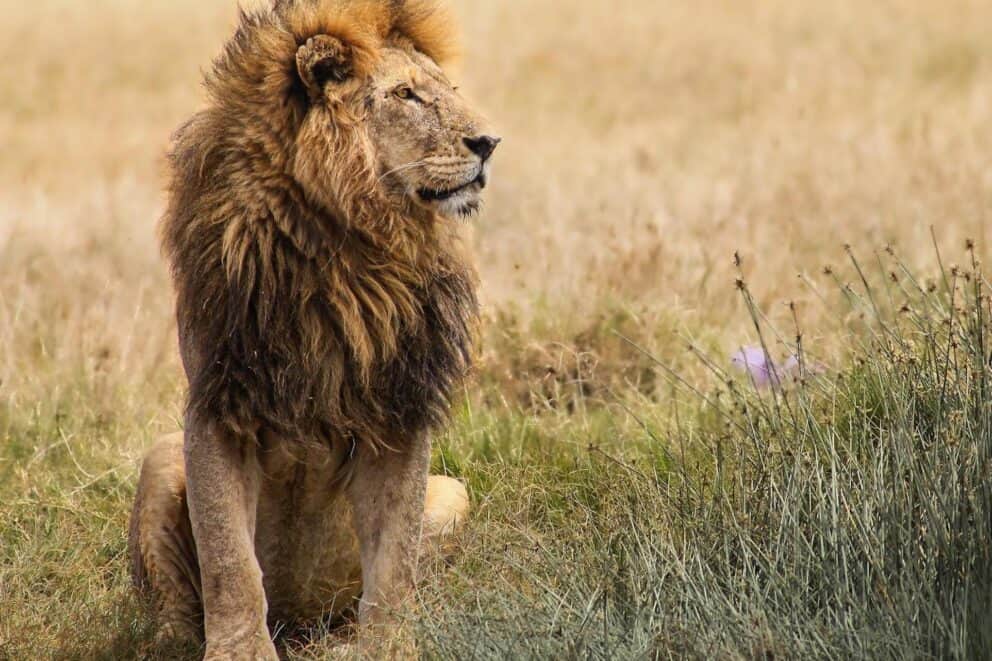
Africa’s lions roam across several diverse landscapes – from Botswana’s wetlands to Tanzania’s iconic plains and South Africa’s rugged reserves. They have even made their home in the acacia woodlands and savannah of Uganda, where a small population has developed the unusual habit of climbing trees. This rare sight, seen in Queen Elizabeth National Park, highlights their unique adaptability, cementing their title as true kings of the wild.
Each destination that these regal felines have conquered offers a unique lion safari experience.
1. Serengeti National Park, Tanzania
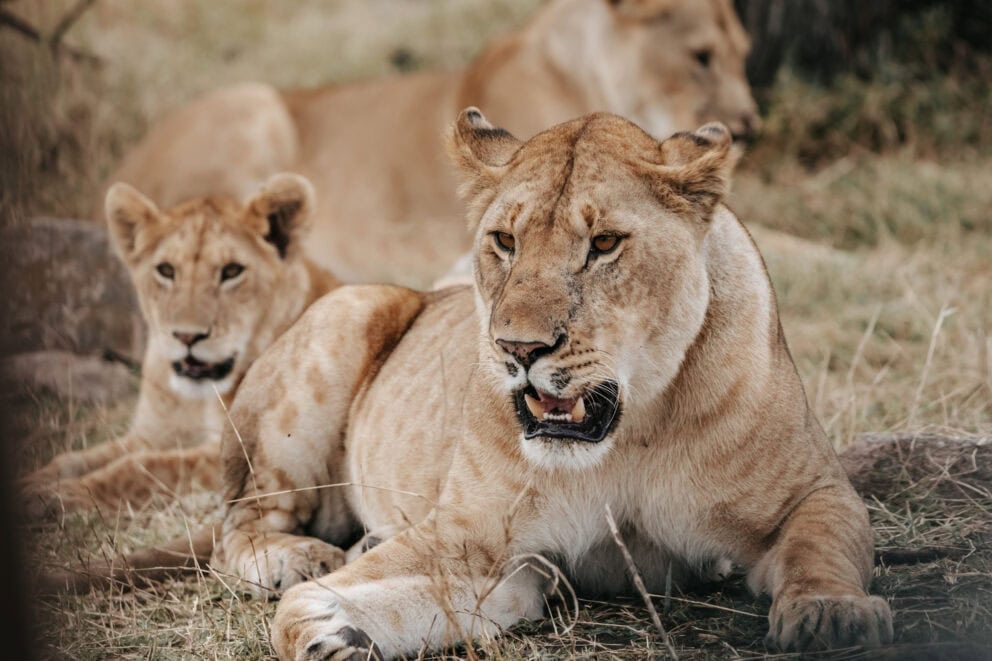
If you’re asking “where is the best place to see lions in Africa?”, the Serengeti is a top contender. Tanzania supports the largest lion population on the planet, with its many prides following the rhythm of the Great Migration. Early morning game drives here often reveal lions stalking wildebeest herds or lounging in golden grass – a landscape so iconic that it famously inspired the scenery of The Lion King.
For a chance to see these apex predators rule the savannah, consider a migration safari during the Great Migration’s calving season (January to March). That way, you’ll get to see these magnificent beasts on the prowl for the fresh meat of baby wildebeests in the far reaches of the southern Serengeti.
On the other hand, a safari during the river crossing season later in the year also offers fantastic predator action, as many lions often lie in wait on the banks of the Mara River in hope of catching a quick meal.
2. Masai Mara, Kenya

With an estimated population of about 900 individuals, the lions of the Masai Mara are one of Kenya’s main attractions for safari-goers.
The famed Marsh Pride – featured in numerous wildlife documentaries like Big Cat Tales and BBC Earth’s Dynasties – has cemented their place in big cat history and has made the Masai Mara one of the best places to see lions in Africa. For updates on this famous pride, you can follow Governor’s Camp’s Facebook and Instagram pages, where they provide regular updates on these imperial felines.
Combine the sights of regal manes glistening in the sunlight and sounds of thunderous roars in the evenings with stunning landscapes, luxury camps, and expert guides, and you’ve got the ultimate lion safari experience.
3. Okavango Delta, Botswana
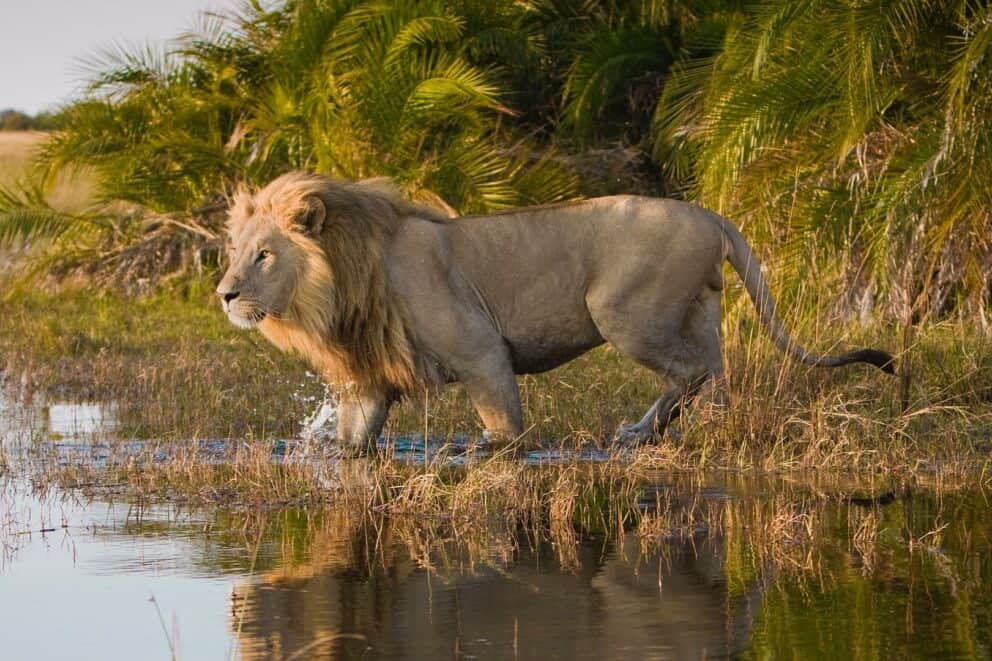
In Botswana’s Okavango Delta, lions have adapted to a semi-aquatic world; thus, they are known for being exceptionally large and muscular due to their unique environment.
Regular swimming has endowed the Delta’s lions with robust shoulders, and an abundance of large game, such as Cape buffalo, has given them a protein-rich diet, adding to their large size compared to other populations. Unlike their cousins, who are more suited to hunting in the evenings when temperatures have cooled, the lions of the Delta regularly hunt during the day, taking advantage of the cooler, wetland conditions.
For an exclusive safari experience, the Delta’s private concessions mean fewer vehicles, excellent photographic opportunities with these big cats, and exceptional guiding. As any seasoned safari-goer will tell you, Botswana has some of the best camps for big cat safaris.
4. Kruger National Park and Private Reserves, South Africa
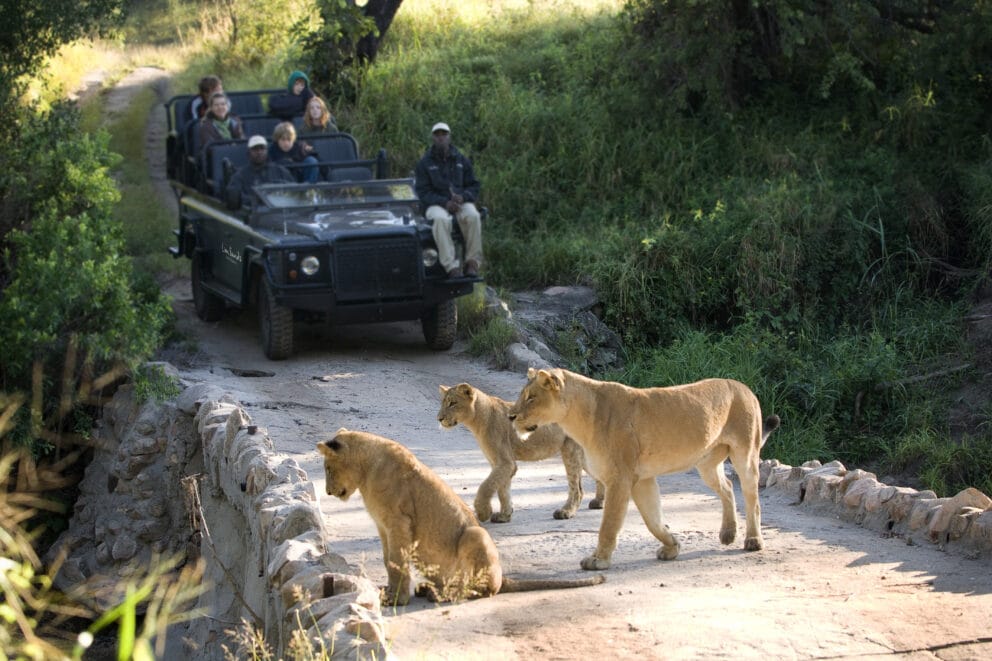
Lions are abundant in South Africa’s Kruger National Park, particularly in private reserves such as Sabi Sand, Timbavati, and Klaserie, where off-road safaris and expert trackers allow you to follow these predators.
There are around 1,600 lions in Kruger and its surrounds, making it one of the best places in Africa for a lion safari. Lion sightings here are magnificent, and nine times out of ten, you’ll be able to spot them on a regular game drive, especially when you’re accompanied by some of the world’s most experienced guides.
Although these lions are fairly spread out, your best bet for seeing one would be in the southern parts of the Greater Kruger.
With world-class luxury lodgings and safari camps, you can combine your sightings of these incredible cats with an opulent stay in some of Africa’s most exclusive safari lodges.
5. Queen Elizabeth National Park, Uganda
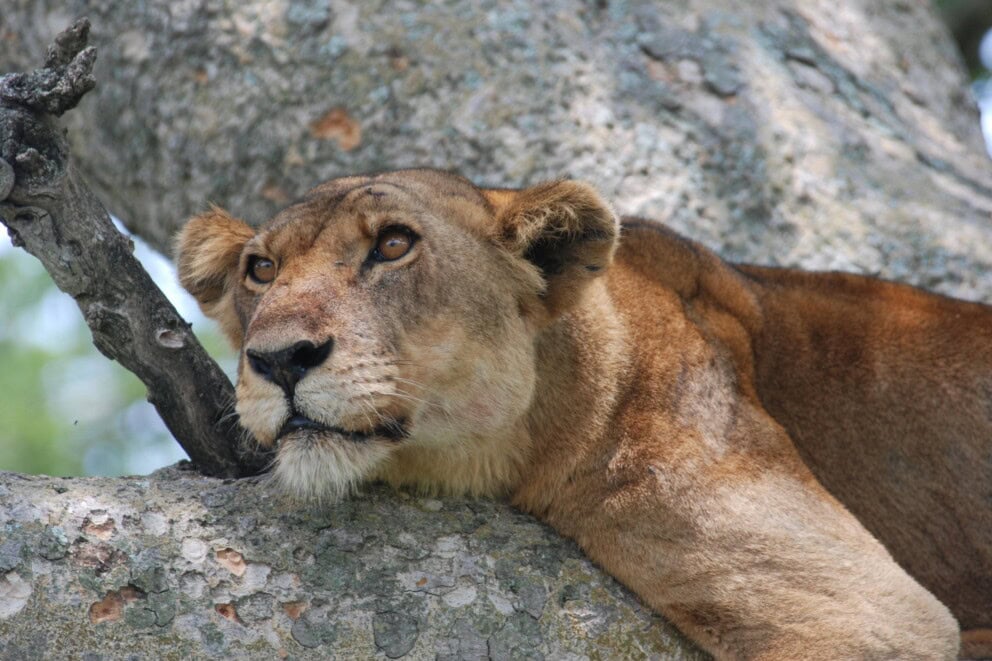
Did you know Uganda is home to tree-climbing lions? In Ishasha, a southern section of Queen Elizabeth National Park, these big cats spend their afternoons draped across acacia and fig trees – an unusual behaviour that’s not often seen.
These unique prides are known to lazily hang out on tree branches, making this section of the park a popular lion safari destination. Their unusual behaviour has been extensively studied, with many wildlife experts concluding that these lions use trees to escape the heat, get a better view of their prey, and avoid insect bites.
Types of Lions in Africa
Now that you know all about where to see lions, let’s dive a bit deeper into the types of lions in Africa. While there is technically only one species of lion (panthera leo), researchers recognise a few regional subspecies.
The southern African lion (P. l. melanochaita) is the most widespread, found from South Africa up to Kenya and Tanzania, while the West and central African lion (P. l. leo) has distinct genetics linking it more closely to the Asiatic lion of India. Beyond genetics, African lions do show some regional differences in looks and behaviour.
Maneless Lions
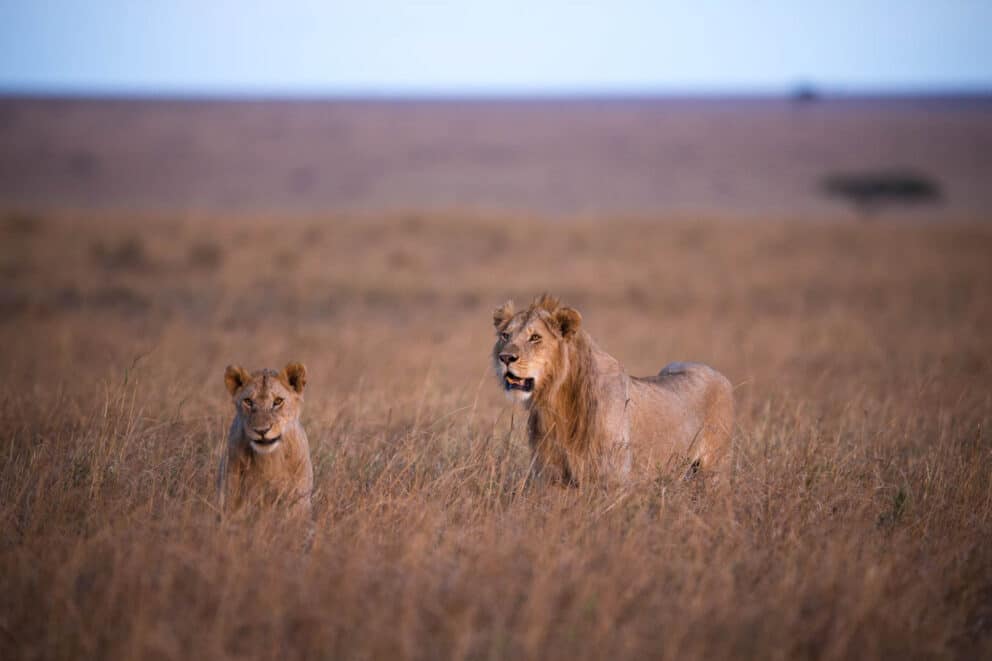
The lions of Tsavo in Kenya are famous for being largely or completely maneless. The males have minimal manes, possibly due to the hot, arid climate, thick thorn bushes that would snag manes, or genetic factors. These were the infamous “man-eaters of Tsavo” from the 1890s railway construction.
Some lions in Ngorongoro (Tanzania) also have reduced manes, and there’s evidence this might be related to high temperatures and biting flies in the crater.
Desert-Adapted Lions
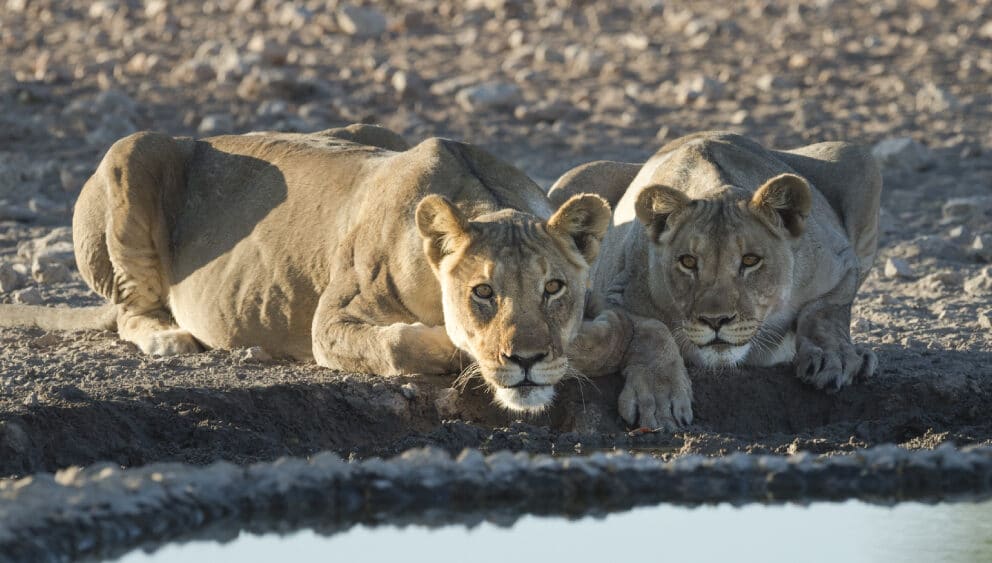
The lions of Namibia’s Skeleton Coast/Kunene region have adapted to extremely harsh desert conditions. They have larger home ranges than any other lions (sometimes ten times larger) and can go days without water by eating moisture-rich prey. They’ve even learnt to hunt seals along the coast!
Kalahari Lions
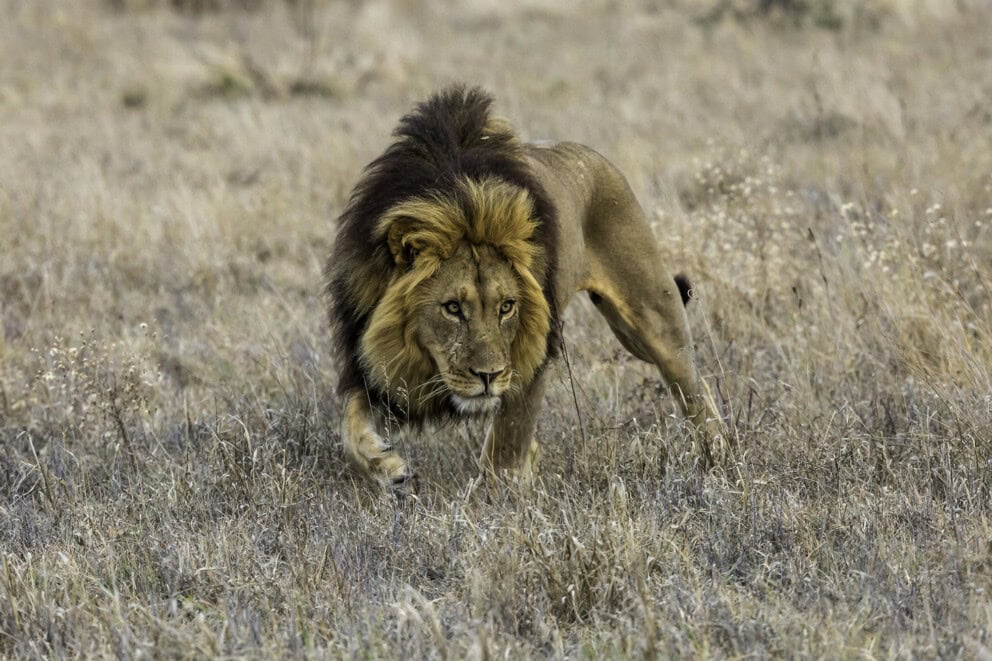
Lions in the Kalahari Desert have adapted to semi-arid conditions, often developing darker, fuller manes and hunting specific desert prey. These unique lions have adapted to have longer legs, larger paws, and a leaner build compared to other lions, with their unique build aiding them in traversing the soft sands of the Kalahari.
White Lions
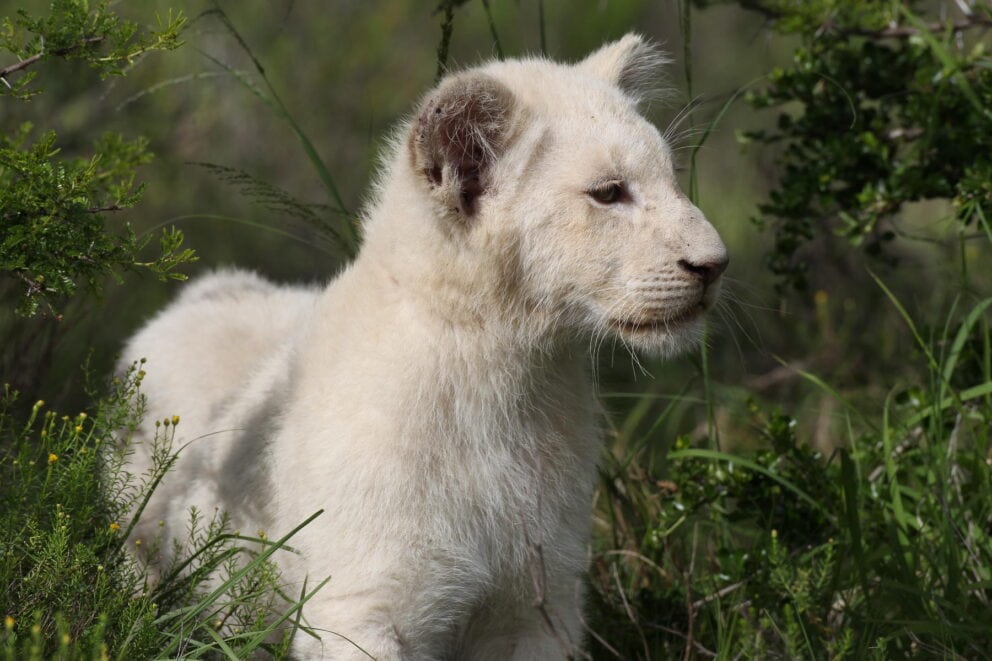
These are rare colour variants found naturally in the Timbavati region of South Africa’s Greater Kruger National Park, caused by a recessive gene. They’re not albinos but have leucism, giving them striking blue eyes and white coats. While unique, they’re not a separate type and can breed with regular tawny-coloured lions.
Lion Conservation
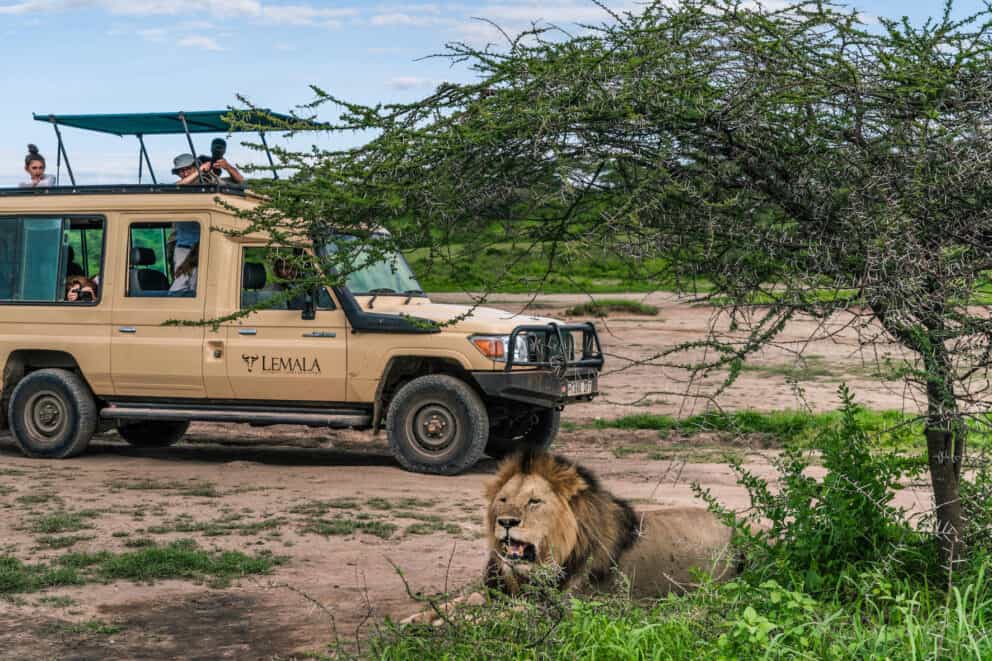
Sadly, Africa’s lion population has declined by nearly half over the past 25 years. Habitat loss, human-wildlife conflict, and poaching have pushed them out of much of their historic range. Today, around 25,000 wild lions remain.
Thankfully, conservationists, communities, and safari operators are working together to change this story.
- Community conservancies in Kenya and Namibia provide locals with income and incentive to protect wildlife.
- Lion monitoring projects in Tanzania and Botswana help scientists track movements and prevent conflict.
- Eco-tourism plays a vital role – each guest’s safari can support anti-poaching units and local education initiatives.
Sustainable Lion Safaris
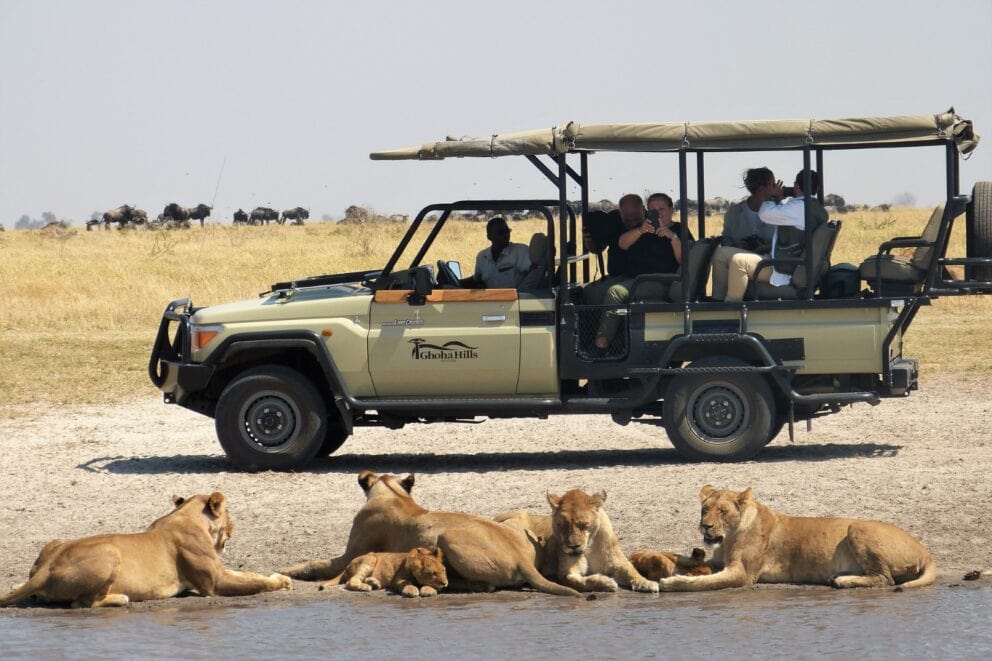
With lion populations declining, the need for sustainable tourism has grown. Here are some key ways to ensure your lion safari is a sustainable one:
Select the Right Destinations
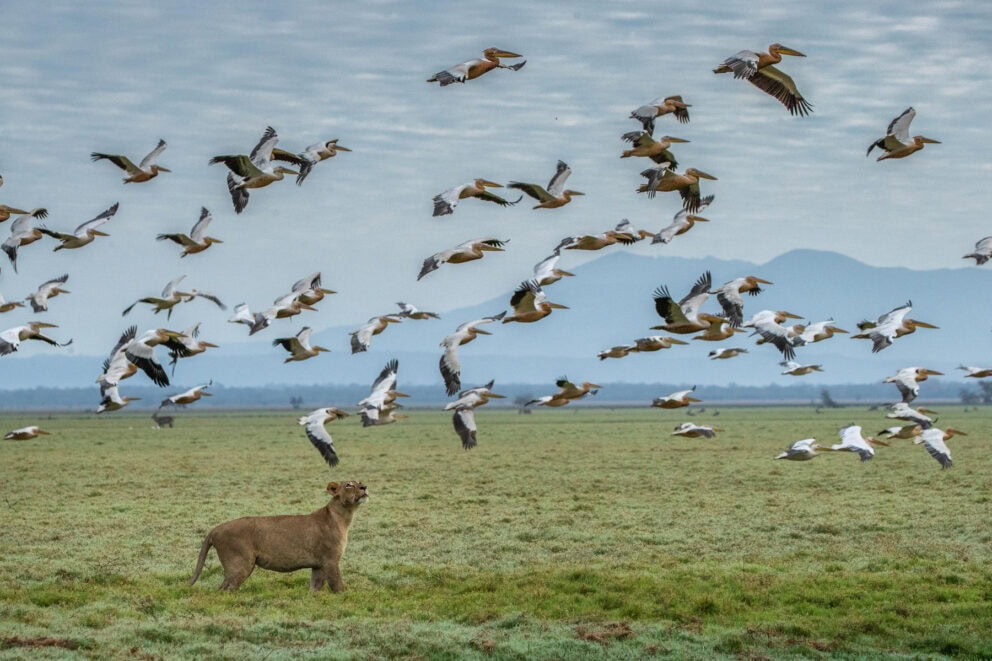
Alongside Africa’s celebrated national parks, consider visiting community conservancies and private reserves that complement conservation efforts. In Kenya, the Masai Mara conservancies work hand-in-hand with local communities to protect wildlife corridors.
In South Africa, private reserves bordering Kruger enhance biodiversity and visitor experiences, often achieved through unfenced boundaries to allow wildlife to roam freely.
Across the continent, rewilding projects in Malawi and Mozambique are restoring ecosystems and wildlife populations. In Mozambique’s Gorongosa National Park, a park once devastated by civil war, there were fewer than 40 lions in 2012. Today, it stands as a conservation success story, having had its natural beauty and biodiversity restored to its former glory.
Malawi’s Majete Wildlife Reserve was once devastated by poaching. Today it’s a Big Five destination, as several animals have been reintroduced to the reserve. Lions were reintroduced in 2012, and since then they’ve thrived – cubs can again be spotted.
Practice Responsible Viewing
Maintain proper distances from lions (your guide will know the rules), never request off-road driving unless permitted, keep noise levels down, and never feed wildlife. Avoid facilities offering “walking with lions” or cub petting – these operations often exploit lions and don’t contribute to conservation.
Support Conservation Directly
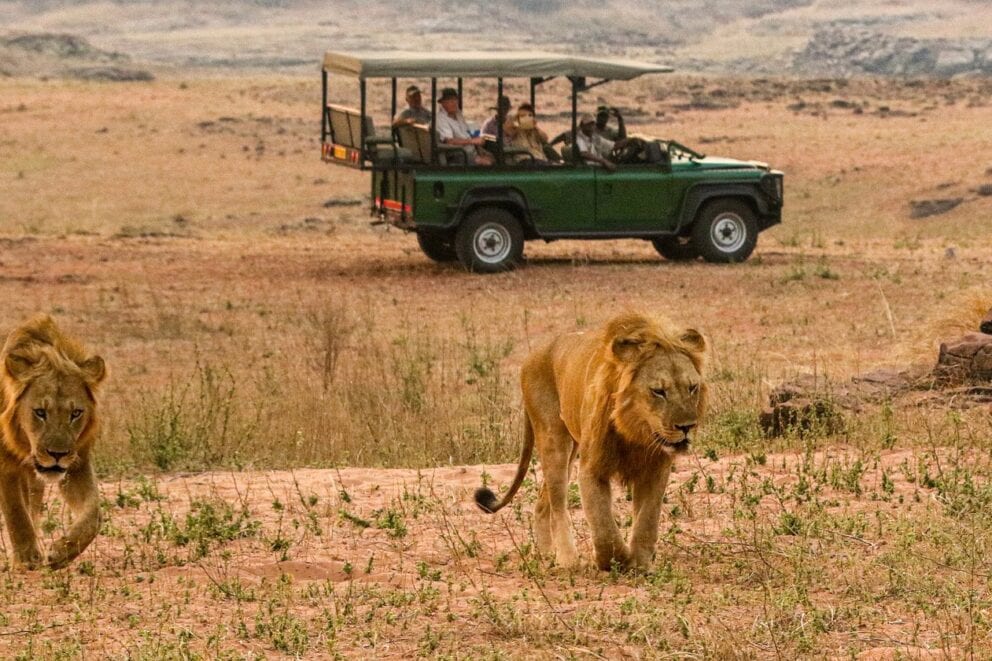
Choose operators that contribute financially to anti-poaching efforts, habitat protection, or community development. Some lodges donate a portion of their fees automatically, or you can contribute to organisations like the Lion Recovery Fund or the African Wildlife Foundation.
For example, when you stay at one of Natural Selection’s lodges or camps, you will be automatically contributing to conservation and community works in the area. They are also involved in many conservation projects, such as the Aardvark Project and the EFA Elephant Collaring Project, which both contribute to conservation and scientific studies.
Ultimately, every choice you make as a traveller holds weight. By consciously selecting safari operators and lodges that are committed to sustainable practices and active conservation, you are transforming your holiday into a powerful act of good. Your safari becomes direct funding for anti-poaching efforts, habitat protection, and vital community development, making you an essential partner in safeguarding Africa’s magnificent wildlife.
Ready to See Africa’s Royal Family?
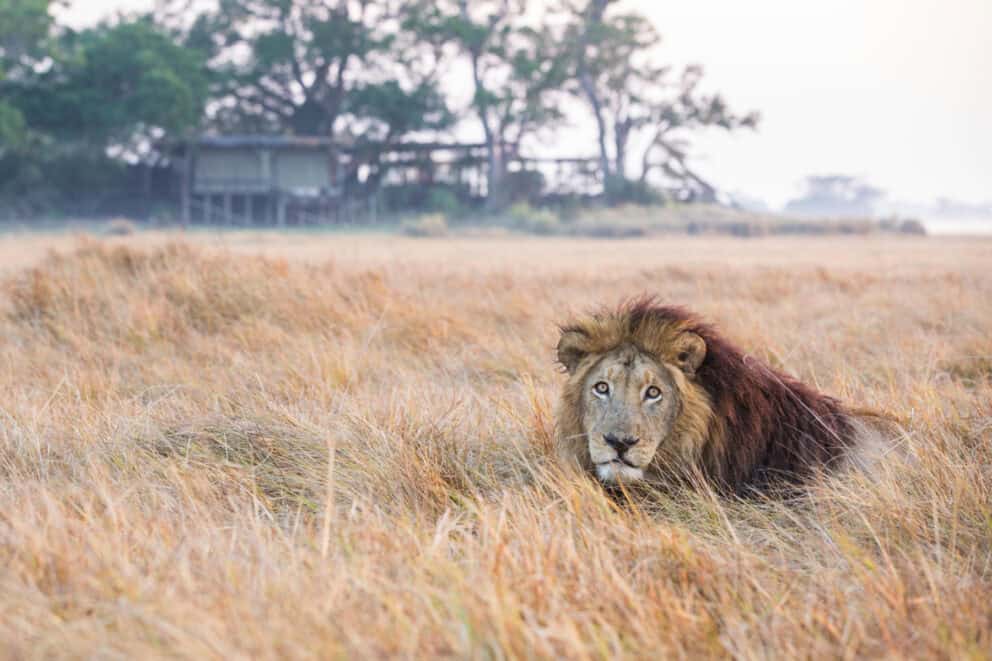
Whether you dream of seeing the Marsh Pride in the Masai Mara, the white lions of Timbavati, or the desert-adapted prides of Namibia, there’s no shortage of breathtaking encounters waiting across the continent.
A tailor-made safari is the best way to ensure you’re in the right place at the right time – with expert guides who understand lion behaviour and the rhythms of the land.
Explore our tours and get in touch with our safari experts today to start planning your once-in-a-lifetime journey – one that helps protect the very wildlife you’ve come to see.









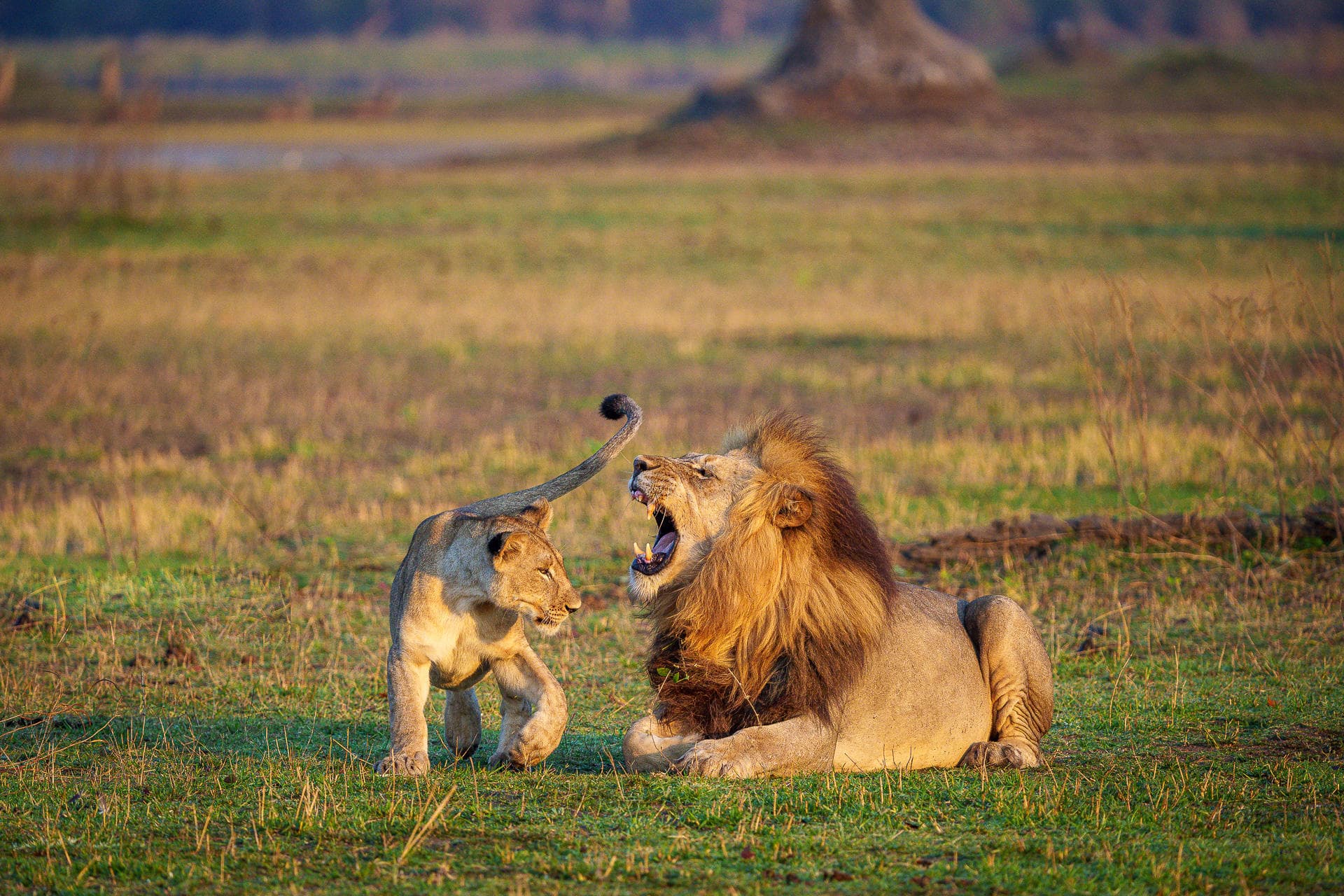

 Blog List
Blog List










Written by Thaakiera Ackerdien
• Travel Writer